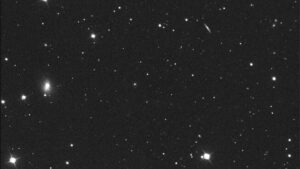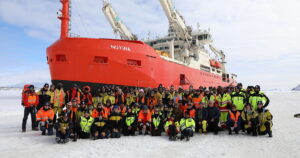
The long-debated theory suggesting that humanity could be living within a computer simulation has been mathematically disproven. New research, published in the Journal of Holography Applications in Physics, asserts that not only is the concept improbable, but it is also fundamentally impossible.
The idea of a simulated reality gained popularity through figures such as Elon Musk and cultural references like the 1999 film The Matrix. Proponents of this theory posit that our universe might be an advanced digital construct created by a higher intelligence. However, according to co-author Dr. Francesco Marino from the Italian National Institute of Optics, this notion lacks mathematical validity. He stated, “We have shown that a fully algorithmic description of the Universe is impossible.”
Dr. Marino explained that while a simulated world could potentially replicate certain algorithmic components of reality, it would inevitably fall short of encapsulating the deeper, non-algorithmic truths of existence. The research hinges on concepts from quantum gravity, a complex theory positing that all entities, from subatomic particles to the fabric of spacetime, emerge from a more profound “Platonic realm” of pure information.
The findings emphasize that this realm of information cannot be fully replicated through computation alone. There will always be aspects of reality that algorithms cannot reach. This concept resonates with the work of mathematician Kurt Gödel, who in the 1930s demonstrated that some true statements cannot be proven mathematically. “It’s proof that computation alone can never capture all aspects of the universe,” Dr. Marino added.
In support of these findings, Dr. Mir Faizal from the University of British Columbia contributed insights related to incompleteness and indefinability. He remarked, “We demonstrate that a complete description of reality cannot be achieved through computation alone. Hence, this universe cannot be a simulation.”
The implications of this research extend beyond mere philosophical debate. Co-author Dr. Lawrence Krauss, affiliated with the Origin Project Foundation, noted that the results challenge the pursuit of a singular “theory of everything.” He stated, “A complete and consistent description of reality requires something deeper—a form of understanding beyond computation itself.”
This groundbreaking research sheds light on the limitations of computational models in explaining the universe. It raises significant questions about the nature of reality and the methods through which humans seek to understand it. As scientists continue to explore the complexities of existence, this study serves as a reminder of the profound mysteries that still elude our grasp.






